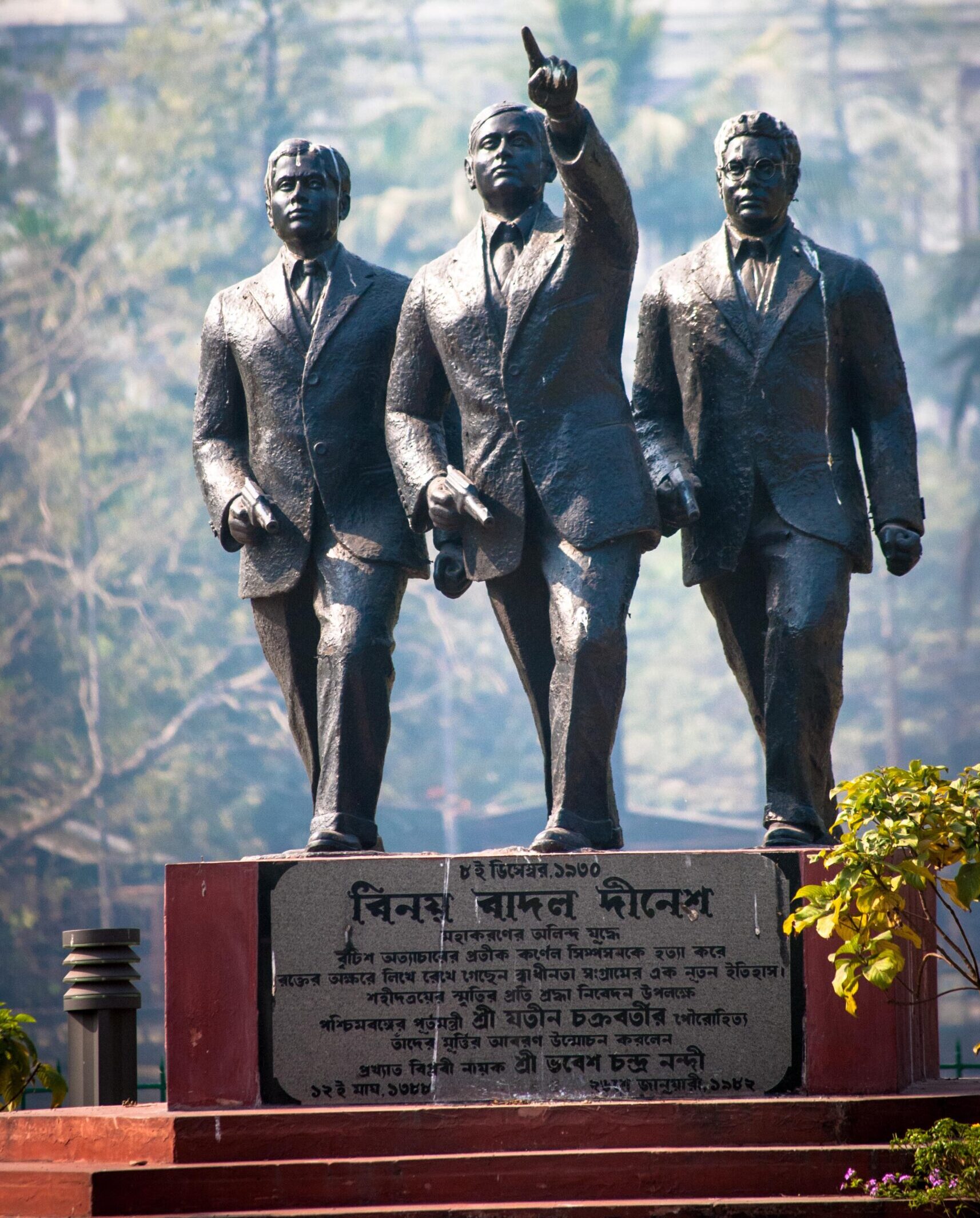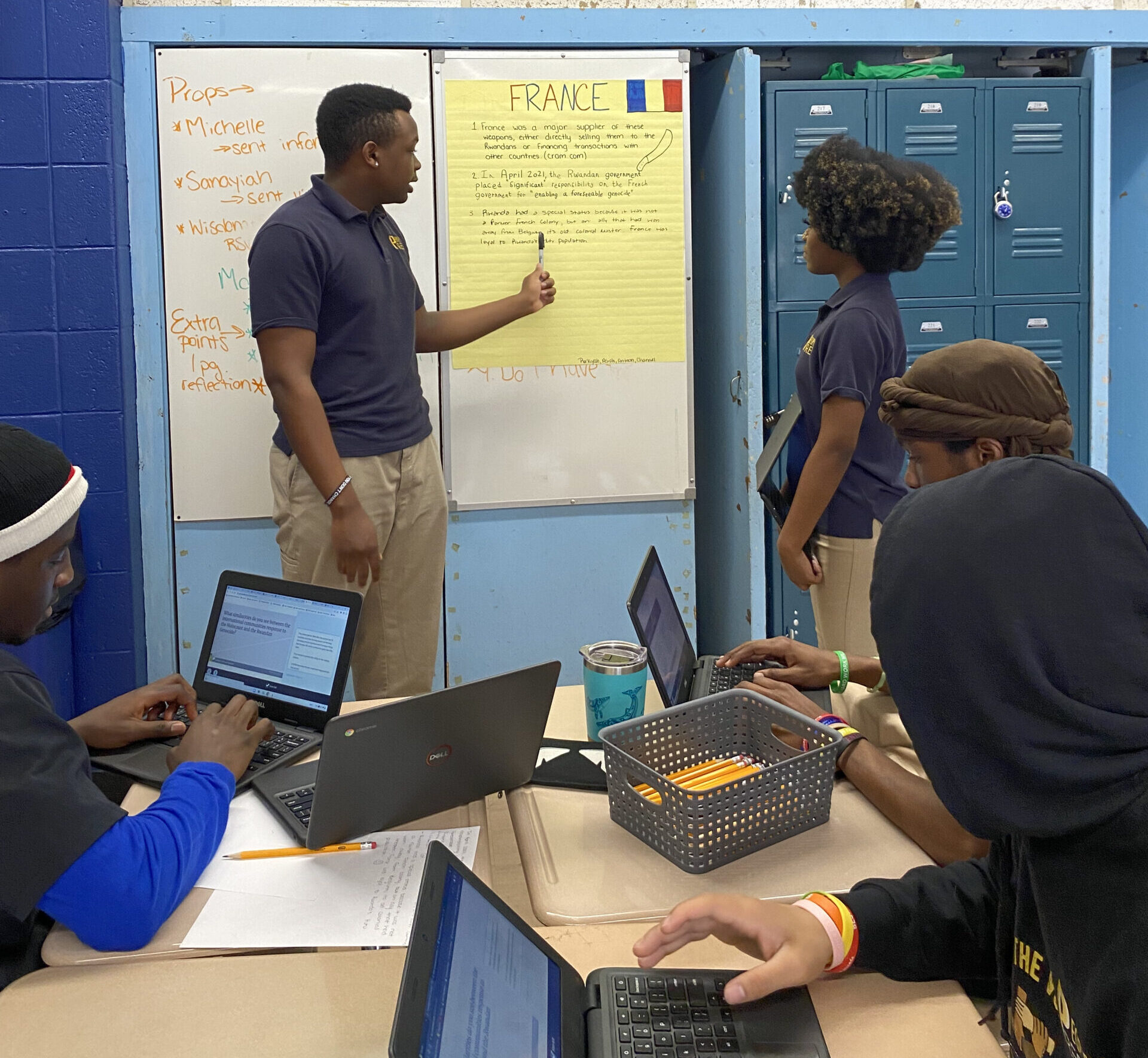The World Cup soccer competition of 2009 between Egypt and Algeria was held not only on the playing field but also in the streets, schools, and media in those countries and throughout Europe, especially in France. Encouraged to talk about the competition in class, students in my “Western Civilizations II” classes eagerly reported each day’s news about the soccer players, riots in the streets of Paris, and “bad boy” behavior toward the opposing teams. It was easy to turn that enthusiasm directly to the history of the decolonization of French Algeria, asking “Why should there be riots in Paris about an Algerian soccer game?” From there I led the discussion to the political history of French-Algeria: the Sétif revolt of 1945; the “pied noir” controversy; ethnic and religious conflicts in France; Gillo Pontecorvo’s film, The Battle of Algiers; and Charles de Gaulle. And then we went on to discuss the historical analysis of those events in Alistair Horne’s book A Savage War of Peace, Algeria 1954–1962. We then had to consider also a question that logically followed: “Why was this book assigned as required reading for U.S. military commanders on the ground in Iraq?”
In effect, therefore, the value of using the World Cup as a gateway for teaching French-Algerian political and cultural history from a new perspective, while seemingly obvious, is not just in the one event itself. Its true value is the multifaceted opportunities such events provide for engaging students in political history beyond, or possibly even without, a textbook. This sort of concrete resonance between political history and present day popular culture has become an integral part of my teaching and remains one of the key components of some of my most successful classes. Creative planning and a commitment to flexibility can open doors to more such opportunities, and using contemporary connections to aspects of past political history can, and should, be embraced as a classroom tool.
One of the challenges of this approach is to keep a close watch on current political events as well as popular culture, to be able to take advantage of opportunities that arise at the last moment. For example, the 2010 Commonwealth Games held in India—an “anachronistic tribute to the erstwhile British Empire” according to one commentator from the Hindustan Times—were the “most well publicised Commonwealth Games in history,” partly because of the last-minute upset wins by Indian teams.1 I asked the students: Why is it significant that India won at the Commonwealth Games? What was India’s role in the British Empire? What is the meaning of the Commonwealth? These questions led to a discussion not only of nationalism and nation building in the 19th century, but further afield, to discussions of colonization and decolonization in the 20th century.
The Olympic Games also offer numerous opportunities for this teaching approach. Especially today, as the world witnesses the historic revolutionary events in North Africa and the Middle East, it will be useful to watch the 2012 Summer Olympics to be held in the 80,000 capacity stadium being constructed now in London. Iran has already refused to participate as long as the London Olympics logo reminds Tehran of the word “Zion,” which leaders consider to signal a “veiled pro-Israeli conspiracy.”2 This news item can obviously lead to a discussion of the history of politics and nationalism in the Middle East.
When discussing nationalism and nation building, I point out that modern Greek national consciousness has been linked with the ancient Olympics, as well as with symbolic identifiers such as flags, songs, colors, costume, folk tales, and language. YouTube videos of recent Olympics can be shown to engender discussions about the identifiers used by current teams. Then students read interviews with modern-day athletes talking about what it means to be a member of a national team, not only at the Olympics but in professional sports. Zinedine Zidane, French-Algerian soccer star, comes to mind as a symbol of French nationalism (although he is always identified as of Algerian stock), but also Babe Ruth, Larry Byrd, and Michael Jordan, representing America’s national identity. When studying the aftermath of the Cold War, we are reminded of the 1980 U.S. Olympic Hockey team who became heroes by defeating the Soviet team.
Discussions of sport in Western Civilizations I courses inevitably refer to the Roman Colosseum and gladiatorial combat. I recently showed a Discovery channel film called The Roman Colosseum that depicts that stadium as a computer-generated 3-D model (which entranced the students) and then discusses the engineering of the stadium, as well as the role of gladiators, the emperors, and Roman society. After the film the class read a short article describing all aspects of the gladiator spectacle. Rather than give them a list of questions to answer, students were asked to make a list of questions they wanted answered and then to find the answers in the article or from their notes on the film. This engendered a lively class discussion about their questions, and debates about the answers. From there we discussed other amphitheatres built by the Romans, such as in Arles, France (with my own slides of a bullfight there); in El Djem, Tunisia (with a YouTube video narrated by a college-age student); and a newly excavated colosseum in Chester, England. This may seem like overemphasis on gladiators and sports stadiums, but it helped students comprehend the geographical extent of the Roman empire in decidedly more interesting terms.
The next question was: Why did the Romans build so many sports stadiums? I pointed out to my students that Tunisia today has 36 national soccer teams, and the city of Tunis alone boasts 11 stadiums. It is a common belief among Tunisians that the government “placed a huge emphasis on sports to keep the people otherwise occupied.”3 Did the Roman emperors likewise recognize the benefits of keeping the people busy with sports? That question becomes a useful discussion issue.
Sport can also be used to discuss late 20th- and 21st-century nationalism in relation to organizations such as the European Union by assigning a web research project including sites like “Sport in Europe: Sportpolicy and Systems in the European Union.”4 After reviewing the web site, students are asked to discuss how and why sports organizations are often ahead of political co-operation in the course of the European integration process espoused by the European Union. Students who otherwise are disinterested in the European Union, or European political history in general, often are more engaged when it is linked with the sports they know and love.
Beyond the European Union, the topic of globalization in both western civilizations and world history classes can be illustrated with recent sporting news that can also lead to interesting questions relating to political history. For example, we learn from various news sources that the Brazilian soccer legend Pele visited the Hong Kong Football Club as part of the 2011 New York Cosmos Asia Tour ; that Zhang Jike finished first in the Chinese team trials of 2011 Rotterdam World Table Tennis championships; and that Liang Wenchong, China’s leading golfer and the first Chinese golfer to play the PGA Championship, will compete against Padraig Harrington of Ireland and Spanish “sensation” Sergio Garca in the Volvo China Open in April. It is worth noting that the 2012 Olympics in London will also see a fierce contest between China, Malaysia, Indonesia, Korea, and Denmark for the medals in badminton. Such news triggers questions such as: Is participation in an international sports event the only way a Chinese athlete can leave China? Is communism in China today the same communism espoused by Karl Marx or Chairman Mao?
There are ever-increasing opportunities to use modern-day sport (and other cultural encounters like film and music) to teach past political histories. These are just a few demonstrations of this approach that hopefully will inspire the reader to develop his or her own tactics. It is an ever-changing strategy, depending on current events and evolutions in popular culture, but one that helps engage students at a personal level.
Notes
- Editorial, Hindustan Times, October 13, 2010. [↩]
- Julian Borger, “Iran claims London 2010 Olympics logo spells the word ‘Zion‘,” The Guardian, February 28, 2011. [↩]
- Eleanor Beardsley, “Tunisia Travels Long, Chaotic Road to democracy,” NPR (2011). [↩]
- Editor’s Note: The print version contained a URL for this reference. After going to press, we discovered that this web site has been infected by malware. Therefore, we have decicded not to provide the URL in the online version. [↩]
Gail Hook is assistant professor (adjunct) at George Mason University in Fairfax, Virginia, where she teaches courses on western civilizations and the British Empire, and a graduate course on the Mediterranean world since 1821. She also teaches courses on western civilizations, world civilizations, Islamic civilizations (co-taught), and British Empire at Northern Virginia Community College. Her publications include Cyprus Protectorate: British Imperial Power before World War I (forthcoming, I. B. Tauris, June 2012).
This work is licensed under a Creative Commons Attribution-NonCommercial-NoDerivatives 4.0 International License. Attribution must provide author name, article title, Perspectives on History, date of publication, and a link to this page. This license applies only to the article, not to text or images used here by permission.


